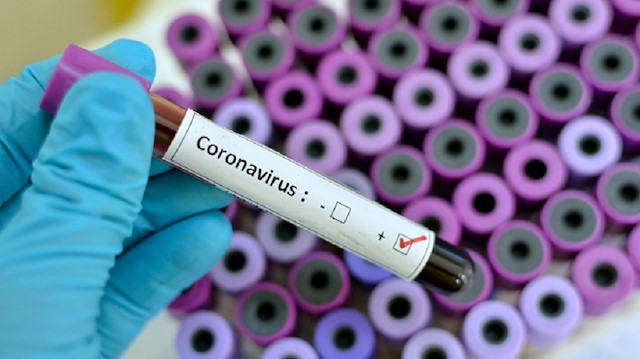
Prior to state action on deadly virus, Turkish expat returning from China isolated himself from society as precaution
As international health authorities called on people who had been to areas affected by the deadly new coronavirus to isolate themselves for 14 days to check for symptoms, a Turkish man put himself under self-quarantine.
Hadi Yaman, a mechanical engineer working in China, decided to leave the country on Jan. 28 amid the escalating virus outbreak and desperate calls from his family and returned to Turkey, where he moved to his family cottage in Adana province and isolated himself from the community.
“I put my mask on and landed in Adana, where I was welcomed with curious stares. The first thing I did was to give my father a mask when he picked me up,” Yaman said, adding the gesture was based on the suggestions of Chinese and Turkish health officials.
The 32-year-old said he went to a health facility shortly after and took a blood test and underwent respiratory monitoring.
Then he moved to his family farmhouse so he would be isolated and minimize the risk of infecting others if he was a carrier, even though he thought that was highly unlikely.
“I followed this path so there would be no risk posed to my loved ones and, of course, my fellow citizens. I’d do the same even if there was one in a billion chance,” he said.
He noted that he was on day 10 of his self-quarantine period and still had four days to go but said this period was more of an opportunity than a crisis as he had been preoccupied with work all the time and finally had the chance to self-reflect.
“I am all alone, so I have time to think and go deeper into my thoughts. Back in China, I was too busy with work. This is more like a precaution holiday that I gladly welcome,” he joked.
While experts are calling on people to boost their immune systems in a bid to counter the deadly virus, Yaman is more than happy to welcome the advice as the gardens surrounding his cottage are full of vitamin C sources with lemon and orange trees.
On the other hand, self-quarantine does not mean isolation from social media for him as he regularly checks the latest developments through the internet, yet he is disturbed by some rare incidents in which Chinese citizens were physically harassed abroad and stories turning the country into a so-called target.
“Chinese people constitute a significant portion in the global tourism industry, and harassing them will lead to a recession in countries where such upsetting incidents take place,” he said, adding: “Some countries are using the virus to hit the economy and put pressure on China.”
“Healthy days will be back once again, and we will all walk freely in the streets of China without masks or anything. I'm wishing quick recovery to Chinese people and offering my condolences to those who lost beloved ones,” he said.
He added that the Chinese officials provided great convenience with regards to the repatriation of Turkish citizens on Feb. 1 and has so far been relatively successful in combatting the outbreak and that Turkish Ambassador to Beijing Abdulkadir Emin Onen also played a key role through close contacts with Chinese diplomatic figures.
Since late December 2019, the coronavirus has been among the top global agenda items. It has claimed at least 636 lives so far whereas the number of the registered cases has mounted to some 31,161.
Many countries have launched evacuation operations to bring their citizens back as the virus has spread to over 20 countries including the U.S., U.K., Russia, France, Singapore, Spain and India.
The World Health Organization (WHO) last month declared the outbreak an international emergency.


